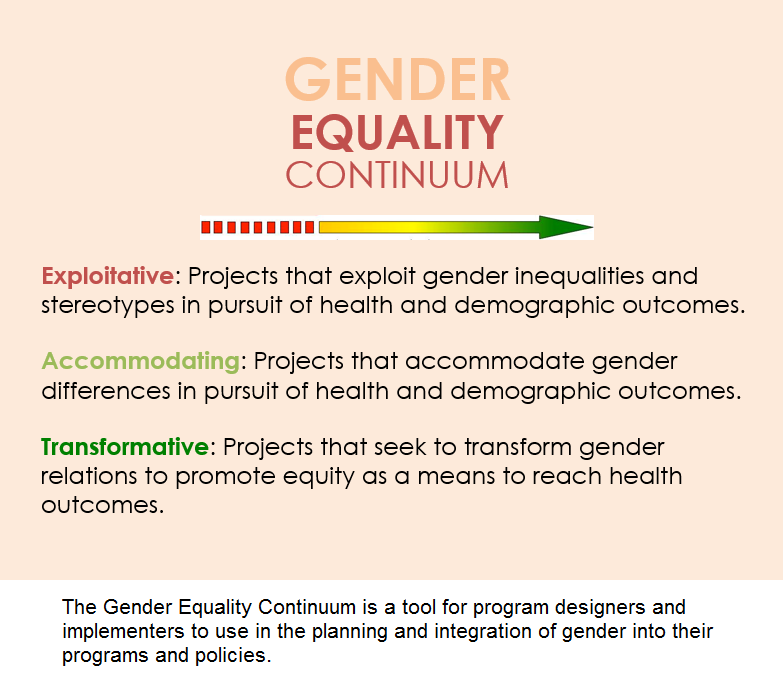Essential Elements for Success: Gender Transformative Ways to Involve Men in Family Planning Programs
Family planning programs are often directed toward women. They usually give little attention to the way that traditional gender norms—societal and cultural expectations of what it means to be a man or a woman—impact modern method use. But gender norms affect couples’ ability to discuss and make informed decisions about family planning and can influence access to information and services. Also, gender-related power dynamics often mean that men have greater say in whether and when sex occurs and if a family planning method is used.
As a result of our better understanding of the influence of gender on family planning, there is a growing recognition that programs aimed at both men and women are more effective than those aimed solely at women and that positive male engagement interventions can improve partner communication and bring about more gender-equitable attitudes.
Getting the lay of the land
Recently, IRH launched an initiative to learn about the essential elements needed for implementing gender transformative male engagement in family planning programs. This initiative began with a program review of recent interventions that have deliberately involved men in sexual and reproductive health. The analysis revealed that despite the rich and varied experiences of involving men in sexual and reproductive health, evidence is lacking on what qualifies as promising practices for engaging men.

Let’s talk about it
To renew interest and discuss the evidence around male involvement, IRH convened a technical consultation of researchers and practitioners. Participants shared their experiences and discussed results of the approaches used in their programs. A major theme of the discussion was gender-transformative programming. The World Health Organization defines gender-transformative programming as: “Programs which aim to transform gender roles and promote more gender-equitable relationships between men and women. They seek to critically reflect about, question or change institutional practices and broader social norms that create and reinforce gender inequality and vulnerability for men and women.”
A deep dive
IRH then dove deep into gender-transformative programming by conducting a cross-case analysis of four family planning initiatives across eight countries. This analysis discussed implementation experiences and results and identified essential intervention elements to be considered when defining emerging best practices for engaging men in family planning. A consistent theme was that successful programs addressed underlying gender norms and existing power imbalances between men and women.
Where are we now
Increasingly, the sexual and reproductive health community is recognizing that programs must address underlying social (including gender) norms in order to achieve widespread, lasting change.
For programs desiring a gender transformative approach to family planning, keep these essential elements in mind:
- Provide a ‘comfort zone’ for men to discuss family planning and sexual and reproductive health
- Foster a sense of shared responsibility for family planning
- Promote couple communication
- Create opportunities to redefine inequitable gender norms related to family planning
- Offer family planning services in the community
- Provide models of positive male behavior and positive consequences of engagement
- Create male-targeted, positive messaging
- Focus on both men and women
Results of this initiative were presented at the 2nd MenEngage Global Symposium in New Delhi, India in November 2014. See our poster here and join the ongoing conversation at #MenEngageDelhi @MenEngage.
Learn more
If you want more information about designing gender-transformative programs and examples of male engagement interventions:
Literature Review: From Family Planning to Fatherhood: Analysis of Recent Male Involvement Initiatives and Scale-up Potential
Peer-Reviewed: Engaging Men in Family Planning Service Delivery: Experiences Introducing the Standard Days Method® (SDM) in Four Countries
—
Elizabeth Salazar is the Uganda Country Manager at Georgetown University’s Institute for Reproductive Health Washington, D.C. headquarter office, providing operational and program support for Uganda-based initiatives.
 Where We Work
Where We Work  Press Room
Press Room  FACT Project
FACT Project  Passages Project
Passages Project  Learning Collaborative
Learning Collaborative  Search All Resources
Search All Resources  Social Norms
Social Norms  Fertility Awareness Methods
Fertility Awareness Methods